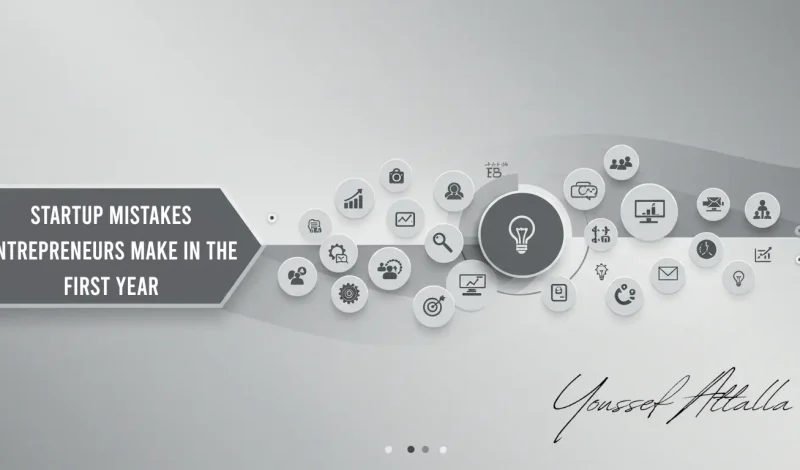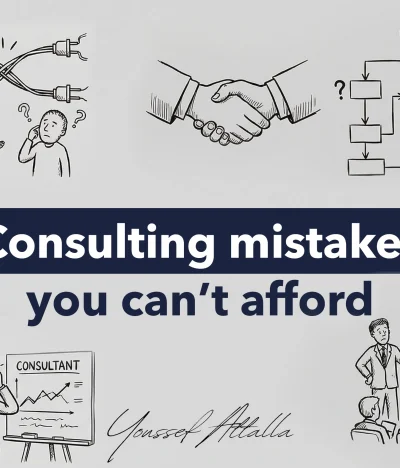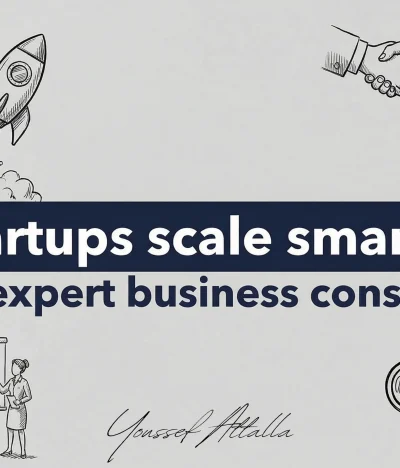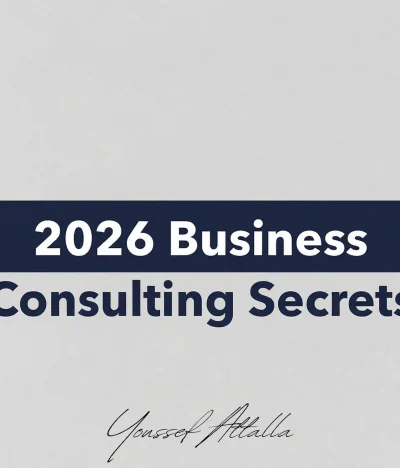The first year of entrepreneurship is a wild ride. It’s exciting, chaotic, and often filled with startup mistakes that could’ve been avoided with the right guidance.
Whether you’re launching a startup, building a consultancy, or opening a retail store, the beginning phase can make or break your business.
In this article, we’ll walk you through the most common startup mistakes new entrepreneurs face in their first year and show you how to steer clear of them. If you’re serious about building a business that lasts, read on.
1. Starting Without a Clear Business Plan
The Mistake: Many new entrepreneurs dive in headfirst without a proper plan. They rely on enthusiasm rather than structure, which eventually leads to confusion, misdirection, and wasted resources.
How to Avoid It: Start with a clear and actionable business plan. It doesn’t have to be 50 pages long—but it should outline:
- Your value proposition
- Target market
- Revenue model
- Marketing strategy
- Initial financial projections
A solid business plan helps you avoid costly startup mistakes, keeps you focused, attracts investors, and guides decision-making under pressure.
2. Underestimating Startup Costs
The Mistake: Many entrepreneurs assume that passion and hustle will make up for limited funds. The reality? Cash runs out—fast.
How to Avoid It: Calculate your startup costs in detail. Account for:
- Equipment
- Marketing
- Staff (or freelancers)
- Licenses and permits
- Emergency reserves
Overestimate rather than underestimate. If possible, raise more than you think you need—it’s easier before you’re in crisis mode.
3. Neglecting Market Research
The Mistake: Some founders create a product or service they think people want, only to find out there’s no real demand.
How to Avoid It: Before launching, validate your idea by:
- Running surveys and interviews
- Studying competitors
- Testing minimum viable products (MVPs)
- Analyzing trends and customer pain points
Skipping market research is one of the most preventable startup mistakes.
4. Trying to Scale Too Fast
The Mistake: In a rush to “grow big,” many entrepreneurs hire too many people, launch too many products, or expand into new markets too soon.
How to Avoid It: Growth should be strategic. Focus on:
- Creating repeatable processes
- Building a loyal customer base
- Ensuring product-market fit
Scaling too fast is a startup mistake that can lead to financial strain and burnout.
5. Wearing Too Many Hats for Too Long
The Mistake: Founders try to do everything themselves—marketing, sales, operations, finances. While it works at first, it’s unsustainable.
How to Avoid It:
- Use freelancers or virtual assistants
- Automate repetitive tasks
- Partner with consultants or agencies
Delegating reduces stress and prevents operational startup mistakes that happen when one person is overloaded.
6. Ignoring Data and Metrics
The Mistake: Operating blindly without tracking performance is like driving with your eyes closed.
How to Avoid It: Track KPIs such as:
- Website traffic
- Conversion rates
- Customer acquisition cost (CAC)
- Retention rate
- Cash flow
Data-driven decisions help you avoid performance-related startup mistakes.
7. Hiring the Wrong People
The Mistake: Rushing to hire without checking cultural or skill fit.
How to Avoid It: Look for shared values, adaptability, and proven skills. Take your time—one wrong hire can be a costly startup mistake that affects morale and productivity.
8. Avoiding Sales and Marketing
The Mistake: Believing that a good product will “sell itself.”
How to Avoid It:
- Build a strong brand presence
- Invest in digital marketing
- Refine your pitch and outreach
- Network consistently
Neglecting marketing is one of the most damaging startup mistakes—people can’t buy what they don’t know about.
9. Failing to Listen to Customers
The Mistake: Ignoring customer feedback because you’re too attached to your idea.
How to Avoid It: Gather feedback through:
- Interviews
- Reviews
- Support tickets
- Social media comments
Listening helps you adapt and avoid product-related startup mistakes.
10. Giving Up Too Soon
The Mistake: Quitting when faced with challenges, assuming failure is inevitable.
How to Avoid It: Expect slow growth, setbacks, and emotional highs and lows. Stay adaptable, seek support, and remember why you started.
Final Thoughts: Build Smart, Stay Resilient
The first year in business is a steep learning curve. But with preparation and insight, you can avoid the most damaging startup mistakes and set your venture on the path to success.
Need expert support in launching or growing your business? Reach out to our consultancy team—your success story starts now.





